 |
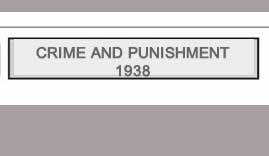 |
 |
 |
||||||
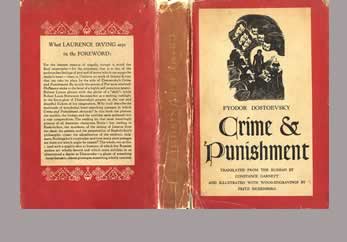 |
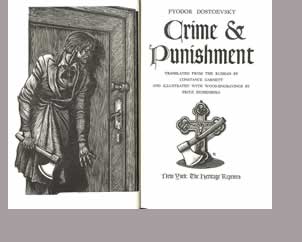 |
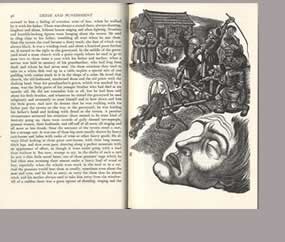 |
|||||||
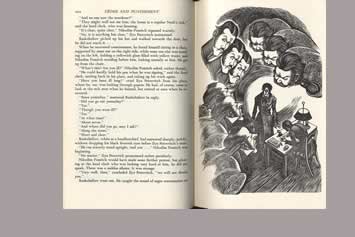 |
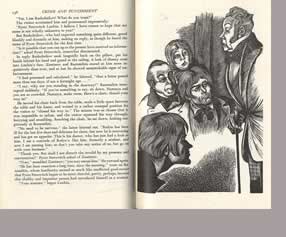 |
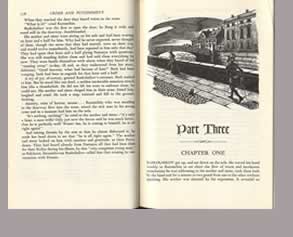 |
|||||||
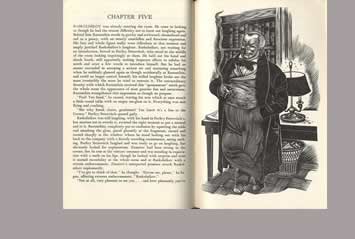 |
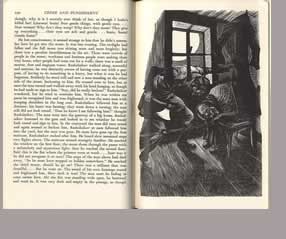 |
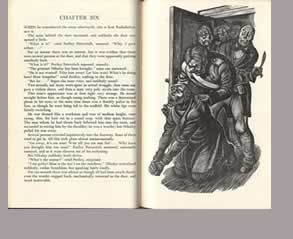 |
|||||||
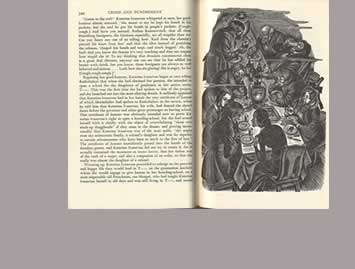 |
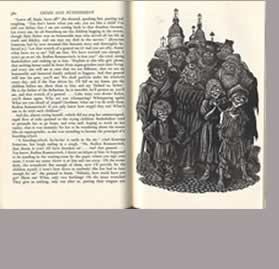 |
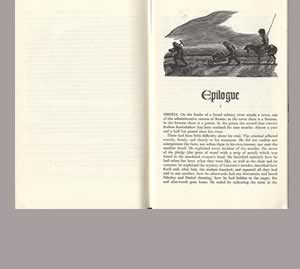 |
|||||||
| My teaching experience was really based on my three or four years at the New School. I gave lectures on subjects which interested me. For instance, the history of the cartoon, the history of satirical caricatures, and so on. Which still interest me as much as they did at the time. And that led me into all kinds of other things which then became incorporated, I would say, in my work with publishers. By that time George Macy of Limited Editions Club commissioned me to do Crime and Punishment. That was my first major book. ROBERT BROWN: Was this the first of your Russian... FRITZ EICHENBERG: The first of the Russian novelists, yes. I had done this as a student before in Leipzig. But this was, to me, a kind of acid test whether I had grown up enough to handle it adequately so that Dostoyevsky would have approved of it. ROBERT BROWN: Was this his choice? Crime and Punishment. Or yours? FRITZ EICHENBERG: His choice. ROBERT BROWN: But you felt you were quite interested in the Russian novel? FRITZ EICHENBERG: Yes. Because all the problems that I had seen and lived through were somewhat the same problems as the Russian novelists were treating. ROBERT BROWN: For example. FRITZ EICHENBERG: The starved student, Raskolnikov, who takes the law into his own hands and commits a murder; feels himself like a little Napoleon fighting an issue which was much too big for him and paying a very heavy price for it - being sent into exile. But in the end there was redemption, always, and that attracted me very greatly to the Russian novelists. It's not an unrelieved account of human suffering. It's always, in the end, an effort to show that, through human suffering, one becomes purified in a way and that redemption in the end is the hope for which you are praying; for which you're working. I think I have not lost this kind of attitude or this kind of an interest in, let's say, heavy psychological literature. The more difficult it is psychologically, the more I'm interested in it. And so, from Crime and Punishment it led to Tolstoy and Turgenev and to Pushkin. ROBERT BROWN: Why do you think this is? That more involved psychologically a situation is, or a novel, or a piece of literature, the more interested you are? Is this again a fact that your own life... FRITZ EICHENBERG: Well, it solves, also, my own problems. Some people have to take it to a psychiatrist or a psychoanalyst. I was able to use art as a kind of purifier, or as a kind of a safety valve for my own problems. Because to leave your so-called "native country" and come into a completely new civilization and adjust yourself to it - raise children here - presents a problem which is not insurmountable. But it's psychologically difficult. You don't want to be a rebel in your new country. You want to show your gratitude, in a way. You also try to do your share to improve conditions wherever they can be improved by your knowledge, or by your work, or by your contribution to society. And, I think, through my work, I could reach people, which has always been very important to me. I couldn't work without an "echo" of some sort. I couldn't work in an ivory tower. So, one book followed another and I became known as "the man who does all these morbid things." At the time they were called morbid. And I think we have come a long way because, now when people see my work, they understand it so much better than did forty or fifty years ago. ROBERT BROWN: What do they see in it now, do you think? FRITZ EICHENBERG: They see what I saw in the beginning: the redemption through suffering. You don't necessarily look for suffering but it's built in. Man is a very fragile being. He does his best to corrupt the environment in which he lives. We have now the problems of pollution and nuclear energy and we have gone through a disastrous war. We lost more than the war. We lost our integrity and our standing in the world to a large degree. Whatever I could do as a kind of conciliator coming from the other side I tried to do. That's one of the reasons why I was picked out to go to the Soviet Union for the State Department, at the time. I met thousands of Russians and shook hands with them. They saw my work and they saw I understood "the Russian soul," as they said. The same when I went to southeast Asia. I made so many friends there through my work. So I knew I was not too far off when I selected to be a not too popular artist in the beginning. Most people then would say my work was "grim," "unrelieved," "morbid." Now they say, "This is life, this is the way life actually is, you have to deal not only with life. You have to deal with poverty, disease, corruption, pollution, death." And death has become very popular now... FRITZ EICHENBERG: Well, whether it's Crime and Punishment, or whether it's Fathers and Sons, or The Brothers Karamazov, or whether it's Raw Youth, whether it's Dostoyevsky, it's always the same kind of problem: it's the clash of generations, usually. The rebelling of the young person. In Raw Youth you have it. In Fathers and Sons you have it. In Crime and Punishment you have it. How can he better the condition of mankind - not to make more money, or to get a better position, but do do something for mankind which will in the end help you too to overcome your psychological problems? Because these were all intellectuals, as Dostoyevsky himself was: a man who was severely ill all his life. He was an epileptic. He overcame these things by pouring all his anxieties and his insights he gained through extreme suffering into his novels. "
Oral history interview with Fritz Eichenberg, 1979 May 14-Dec. 7, Archives of American Art, Smithsonian Institution. |